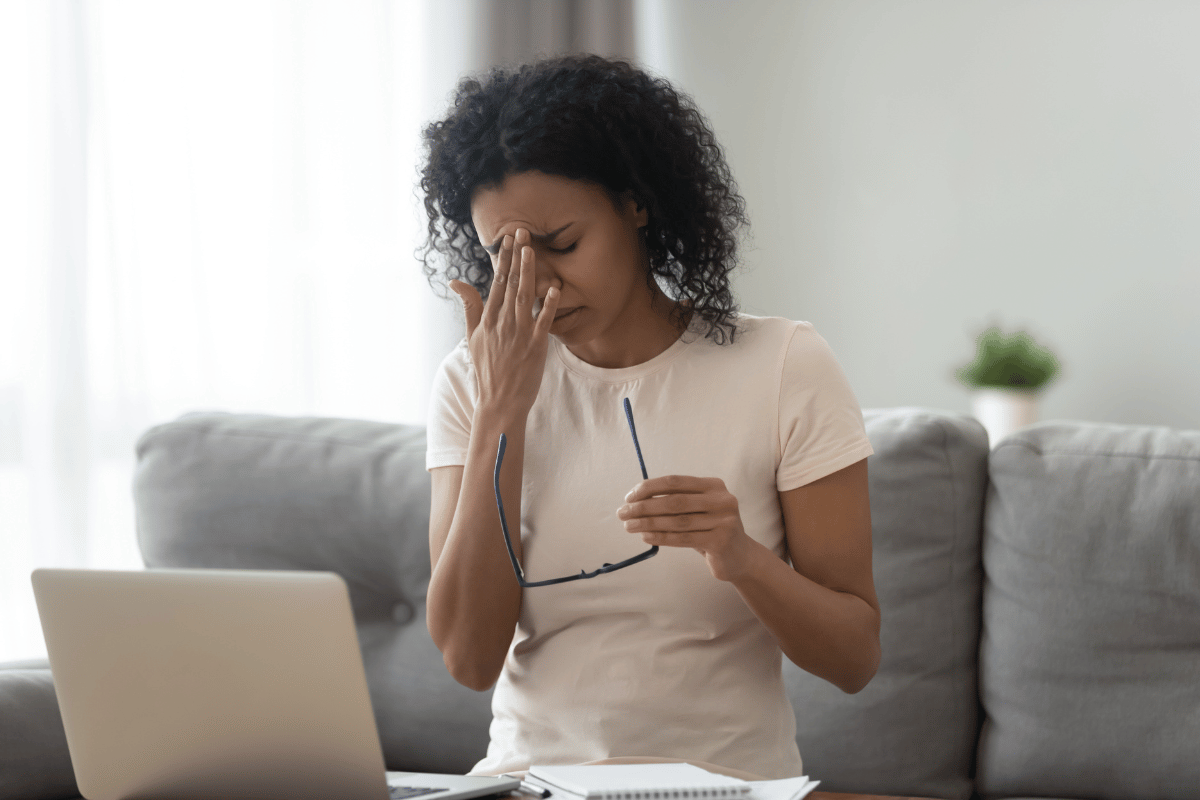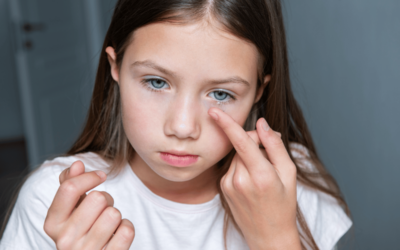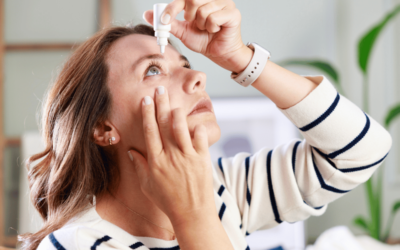Have you ever felt like there’s something in your eye that just won’t go away? Or maybe your eyes feel constantly dry and uncomfortable? You may be suffering from dry eyes. Dry eyes are a common issue that many people face, and it can be more than just an annoyance—it can affect how you live your day-to-day life. Let’s explore the common causes and symptoms of dry eyes so you can get back to feeling comfortable and seeing clearly.
Common causes of dry eyes
Decreased tear production
One common cause of dry eyes is not producing enough tears. As we age, tear production naturally decreases, making those over 50 more susceptible to dry eyes. Certain medical conditions like rheumatoid arthritis, diabetes, and thyroid problems can also reduce tear production. Some medications, such as antihistamines, decongestants, blood pressure meds, and antidepressants, have side effects that can dry out your eyes. Even laser eye surgeries like LASIK can temporarily reduce tear production, though this usually improves over time.
Increased tear evaporation
Environmental factors can cause your tears to evaporate more quickly. Exposure to wind, smoke, or dry air can make your eyes dry out faster. Blinking less often, which happens when you’re reading, working on a computer, or driving, can also cause tears to evaporate more quickly. Problems with your eyelids, like ectropion (where eyelids turn outward) or entropion (where eyelids turn inward), can interfere with the normal spreading of tears across your eyes, leading to faster evaporation.
Imbalance in tear composition
Your tear quality also matters. Tears have three layers: oil, water, and mucus. Each layer is essential for maintaining healthy and comfortable eyes. The meibomian glands in your eyelids produce the oil layer. When these glands get clogged, a condition called meibomian gland dysfunction (MGD), the oil layer becomes insufficient, causing tears to evaporate too quickly.
Dry eye symptoms
Dry eyes can show up in different ways, and symptoms can vary from person to person. One of the most common symptoms is a persistent feeling of dryness, grittiness, or the sensation that something is in your eye. This can be very uncomfortable and make it hard to concentrate on tasks. Other symptoms include:
- Red, irritated eyes
- A burning or stinging sensation
- Stringy mucus in or around the eyes
- Sensitivity to light
- Eye fatigue, especially after reading, using a computer, or driving for long periods
- Blurry vision
- Discomfort while wearing contact lenses
Managing dry eyes
Dealing with dry eyes can be frustrating, but there are plenty of ways to find relief. Using artificial tears or lubricating ointments can help moisten your eyes and provide temporary relief. Sometimes, prescription medications might be needed to boost tear production or reduce inflammation. If you have meibomian gland dysfunction, warm compresses and keeping your eyelids clean can help unclog the glands and improve the quality of your tears.
Making a few lifestyle changes can also help relieve discomfort. Remember to take regular breaks when you’re doing activities that require long periods of visual concentration, such as reading, working on a computer, or driving. This gives your eyes a chance to rest and rehydrate. Using a humidifier at home or in the workplace can add moisture to the air, which is especially helpful in air-conditioned environments. It’s also important to avoid direct exposure to fans or air vents, which can dry out your eyes even more.
You’re not alone in dealing with dry eyes. Our dry eye specialists in Port Richey, Florida are here to help you find the best solutions and make your eyes feel comfortable again! If you’re struggling with dry eye symptoms, schedule an appointment with us today.




